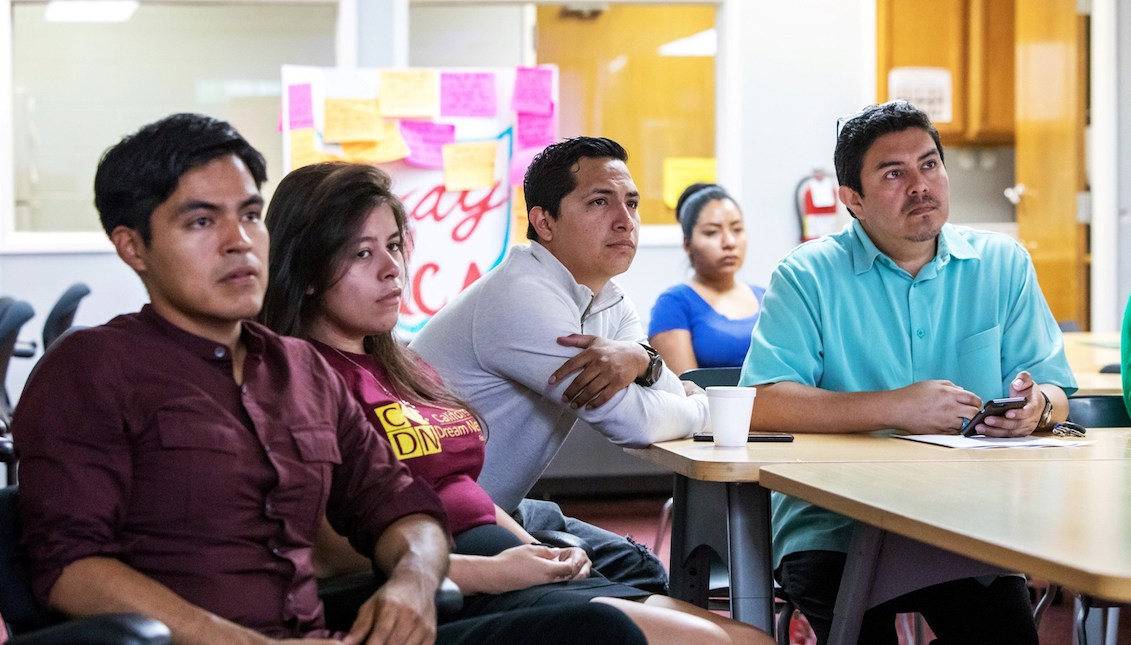
DACA and discrimination bias within technology companies
Latinos have suffered years of discrimination in recruitment to the technology industry.
Technology companies claim to support diversity, yet have done little to support the DACA community and, by extension, the well being of the Latino community in the United States.
Community volunteers and legal advocates claim that recruiters at major technology companies discriminate against potential Latino employees during job interviews. Two such firms, VMware and Hewlett-Packard, are the subject of lawsuits by the Mexican American Legal Defense and Education Fund.
They come amid veteran developers citing a lack of support for achieving leadership positions and many more who speak of a culture indifferent to their ethical concerns, often putting profits before human decisions.
The Latino community in the United States has not benefited demographically or economically from the growth of technology. In the last 30 years, the Latinx community's share of STEM jobs has only grown from 4% to 7%. Latinos also earn $11,000 less in average wages.
Not only in salary, but the community must also deal with persistent and harmful labeling that describes them as unskilled, not as good, or a group uninterested in technological careers.
The recruitment process is still plagued by prejudice.
Recruitment agencies in major technology companies too often look for easy gains in evaluating candidates, while avoiding higher risk profiles. That means they often exclude self-taught, community college or mid-level school graduates, all of whom are the largest group of Latino computer or engineering graduates, according to the Center for Technological Diversity, Kapoor.
This is consistent with studies that find that recruiters also tend to hire people who come from the same backgrounds as executives already employed by tech companies.
When this lack of diversity is mixed with recruiters' "fee-for-hiring" model of compensation incentives, it leads to biased hiring. Recruiters look for people who are hired by executives "and who are there for at least six months, the usual time to trigger a 20% recruiting fee on a technology salary of more than $100,000," Wahab Olowabi tells Medium.
RELATED CONTENT
Google's 2018 diversity report revealed that only 3.6% of employees are Latino, although the company said it saw gains in hiring women, African Americans and Latinos last year. And hiring Latino leaders increased to 5.1%.
Recent studies have found that current harmful government policies are having a severe impact on immigrants and minorities of all ages, whether they are DACA or undocumented.
The technology industry needs to invest more in diversity: Of the $3.2 trillion in global technology spending in 2018, the sector spent only $1.2 trillion on diversity programs, and that was five years ago, according to an OpenMic report. Public statements of support for marginalized communities matter, too.
The Latino community evaluates the ethical decisions of leaders before joining companies, including statements about DACA and immigration.
Many appreciated Apple CEO Tim Cook's pro-DACA public statements but were offended that he allowed President Trump to lie about creating new jobs and building a factory for political gain.
For her part, the director of diversity at Facebook, Maxine Williams, confirmed that much of the lack of diversity in the company is due to the fact that the CEO, Mark Zuckerberg, never had any contact with other communities in his personal history during his studies and said that he is biased by cohabiting in unequal institutions.
Despite discrimination, some researchers believe that artificial intelligence can solve the problem. Perhaps something will change in the future.











LEAVE A COMMENT: